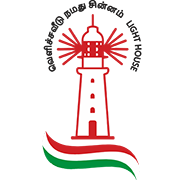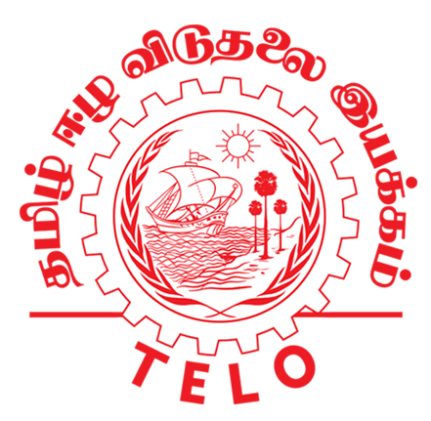President Ranil Wickremesinghe during his interview with German broadcaster Deutsche Welle (DW) in Berlin on October 2 countered the suggestion to hold an international investigation over the claims made by Britain’s Channel 4 Television on Easter Sunday terrorist attacks on April 21, 2019, with strong arguments, no doubt.
Channel 4, in a documentary on the Easter Sunday carnage, last month alleged through the ‘whistleblower’ Azad Maulana that the Easter Sunday carnage was engineered by the State Intelligence Service (SIS) in order to create an environment that would be helpful to Gotabaya Rajapaksa at the Presidential election held in the same year.
It is not clear what went wrong to provoke the President to drag the ‘West’ into the heated argument with the DW journalist at a time when Sri Lanka is seeking assistance from the same West to come out of an unprecedented economic crisis
“Germany does not have such inquiries. The UK does not have such inquiries. What international inquiries have they gone into?” President Wickremesinghe was questioned at the interview after participating in the inaugural event of the Berlin Global Dialogue held on September 28 and 29 in the German Capital, yet with a counter-attack on the region in the world the interviewer belongs to.
“Why is it for Sri Lankans and Asians? You think we are second class? Take this Western attitude out. You are talking nonsense,” he said angrily.
Putting forth another strong argument to negate the demands and suggestions to hold an international probe on the terrorist attacks, he said that investigators from the Federal Bureau of Investigation (FBI), the UK Police and other authoritative bodies in Australia, India, China and Pakistan have all issued reports on the attack, effectively making Channel 4’s allegations moot.
“If those secret services have given reports, what are these allegations,” he questioned.
However, the President had been irritated over the DW journalist Martin Gak asking him this question. He accused that the journalist of holding a Eurocentric worldview that treats countries like Sri Lanka as second-class nations. He gave vent to his annoyance by stating “You have no right to ask me this question” while answering it with strong arguments.
It is not clear what went wrong to provoke the President to drag the ‘West’ into the heated argument with the DW journalist at a time when Sri Lanka is seeking assistance from the same West to come out of an unprecedented economic crisis.
Even a Japanese or an Indian journalist would have asked him the same question in such an interview, as the Chanel 4 documentary is still a hot topic and the terrorist attacks on the 2019 Easter Sunday was an incident that drew attention and interest from all over the world.
The choice of questions at a media interview purely lies with the journalist and not with the interviewee. The latter can refuse to answer a particular question if he does not like it to be asked, but risking the possibility of various negative inferences being created in the minds of the audience by such refusal.
The President’s interview with the DW might be a good case study for journalists in handling tough interviewees. However, Martin Gak was not so unfortunate as BBC’s Douglas Brown who got only answers like “I won’t tell you that”, “Don’t ask me that,” “leave that to me,” “That’s my business,” and “Need you ask me that question at this stage” during the famous interview (which some call a notorious interview) with former Malawian President Dr Hastings Kamuzu Banda on June 21, 1962.
Whatever provoked President Wickremesinghe into such a fury, it might have worked well locally, especially in the southern parts of the country, as he flatly denied any international investigation into any issue – including human rights issues.
And also, at a time when the Presidential election which is said to have been prioritized over the now suspended local government election and the provincial council elections, contesting the allegations against the SIS and thereby against Gotabaya Rajapaksa – especially with an unwanted ferocity – would have gone well with the Sri Lanka Podujana Peramuna (SLPP) from which the President is said to be seeking support for his next term.
Yet, only time will tell if the salvos fired in Berlin will be translated into votes at the next year’s Presidential race.
It is interesting to note that not only the President who challenges the West while relying heavily on the same West in pursuance of recovery from the current economic crunch and facing human rights conundrum at the United Nations Human Rights Council (UNHRC).
Foreign Minister Ali Sabry on September 25, reacting to the India-Canada diplomatic row over the killing of Hardeep Singh Nijjar, a Canadian citizen but designated as a terrorist in India outside a Gurdwara in Canada’s Surrey on June 18 launched a scathing attack on Canadian Prime Minister Justin Trudeau. Trudeau had accused India of the murder.
According to India’s ANI, Sabry had said terrorists have found haven in Canada and their Prime Minister Justin Trudeau came out with the outrageous allegations without any proof. Justifying his meddling in the row between two friendly countries he said “The same thing they did for Sri Lanka, a terrible, total lie about saying that Sri Lanka had genocide. Everybody knows there was no genocide in our country.”
What the minister said about Trudeau’s statement on Sri Lanka was not something of his imagination. Ministry of Global Affairs (of Canada) had very clearly said recently that Sri Lanka did not go through a genocide, whereas PM Trudeau had commemorated the ‘Tamil Genocide Remembrance Day’ on May 18.
However, why should we take a side in a row between two other countries? This is a time when we need more friends. Last year, Sabry was lamenting the difficulty in seeking assistance from the West Asian countries to face the economic crisis as Sri Lanka had antagonized them.
Canada is the prime mover of the Sri Lanka Core Group at the UNHRC. And more pages are being added to Sri Lanka’s human rights file in Geneva almost every month irrespective of the veracity of allegations levelled.
The latest in the list is the resignation of the Mullaithivu Magistrate and District Judge T. Saravanaraja citing life threats and pressures from outside, after the ones about economic crimes and promulgation of various repressive laws.
Sometimes the speculations that the life threats that the judge had cited may be a ruse to seek asylum in Canada where he is said to have gone after his resignation, as speculations had it in the south.
Yet, it was the politicians who gave him ammunition by criticizing his rulings in public. The fact that the West looks down upon the people in countries like Sri Lanka as ‘Second Class’ nations and that LTTE leaders like Nediyavan have taken refuge in Canada is undeniable.
Yet, they should be raised at proper form and not in the media, especially in an inapt manner.





